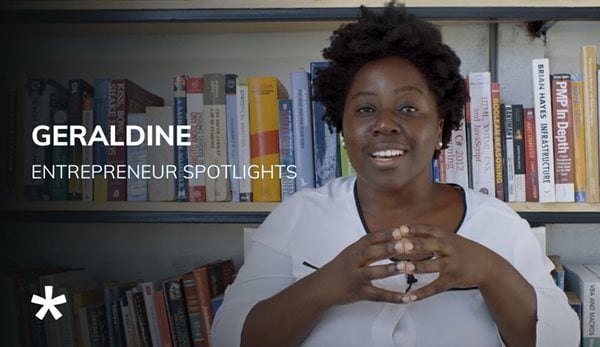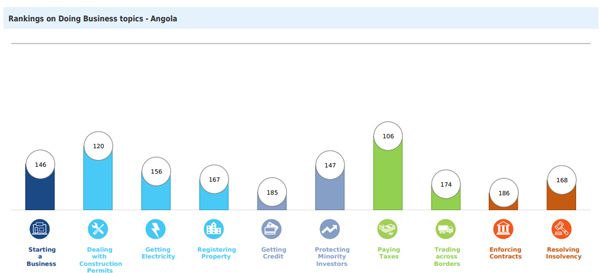Geraldine Geraldo, CEO of Roque Online, shares the story of a startup trying to break the cycle of poverty in Angola.
Can you tell us a bit about Roque-Online?
Roque-Online's mission is to connect the informal trade markets of the world with technologies that allow them to thrive. About $10 trillion gets transacted annually in these markets and yet many of the 1.8 billion participants in these markets are trapped in poverty. We've developed technology that aims to break these poverty cycles.
When, how and why did you get started?
I wanted to apply my business-savvy experience to the problem of poverty in my home country of Angola after spending several years as a lawyer and commercial negotiator in the oil and gas industry. My colleague, Juan Carlos Moreno, joined as a co-founder as he found the idea really exciting and worthwhile and in 3Q2018 we launched Roque Online.
What service do you offer?
We offer back-office support, logistics, inventory and demand planning, and e-commerce channels to informal markets to help them source and sell products.
What are some of the obstacles you've had to overcome since starting out?
We've had a few country-specific problems with the availability of mobile money, which makes some of our processes more efficient. We are addressing this by partnering with Angola's largest commercial bank to help them roll out the adoption of mobile money.
And this, launching a pilot in a highly competitive country that is improving but is still below the median on the World Bank's Doing Business scale comes with its own set of challenges
Covid-19 has had an impact on businesses around the world. What impact did it have on Roque Online?
Like every other online business our growth was accelerated as we provided an essential solution for the communities in which we operate.
During the lockdown, e-commerce channels were deemed essential so our customer acquisition was significant, which meant we had to hire, train and deploy personnel in the field during the crises.
We had to keep up with regulatory changes, nothing is stable in a State of Emergency and the rules change constantly. For a young company, we are proud at the agility that allowed us to manage this business and come out on top.
Were you able to prepare for lockdown? If so, how?
Having a lean organisation things happened very quickly, and we benefited from having a dynamic and resilient workforce. We maintained focus on our core business. It helped to have a clear vision of our organisations core business of providing services to informal markets. This allowed us to seek out opportunities to grow the foundational elements of the business and to capture new opportunities that were aligned with our core business but did not deviate any capital from our budget.
What's the biggest challenge you are facing during this pandemic?
Some closures of markets and limited operating hours. We've been able to overcome these challenges by proactively engaging with our customers. Personnel safety, making sure we can return our staff safely to their families and minimizing exposure for our clients.
What sort of assistance will you need going forward?
We're looking to raise capital to fund future growth. Currently, we're open to equity investments and/or strategic partnerships - the growth ushered in by the pandemic has accelerated the need to scale.
If you are able to operate, what steps are you taking to continue operating?
We have a model that's working well for us. Right now safety our employees and customers is top priority.
Now is the time to innovate and experiment. What is Roque Online doing?
We're starting the process to make improvements to our core technology, i.e. our mobile application. We have also deployed mobile markets in Angola. This enables us to move vendor products to defined locations within the city of Luanda.
What do you predict the next 6 months will be like in Angola?
It's hard to say anything will be back to normal until a vaccine is out. Angola may emerge with some changed behaviours in particular regarding the resiliency of supply chains and consumer views on e-commerce.
What has been your biggest lesson from all this?
Hire resilient people that believe in your mission; they're the key to survival.
What would you like to see changed in the African startup landscape?
There's a trend to offer a lot of "services" to startups like mentoring, incubators, accelerators, etc, but there's a lack of actual capital. No one is denying the importance of those types of services, but real capital is critical for success. We were once told that African startups unfortunately have to "prove" themselves in ways that startups in Silicon Valley don't - how is this double standard justified? There are many African startups that are on par with Silicon Valley ones - investors just need some courage.
What does the future of entrepreneurship look like to you?
That's hard to answer. It's best to talk about what principles of entrepreneurship will remain the same. Entrepreneurs will still be people with big dreams and endless passion that don't care what the odds say.










































